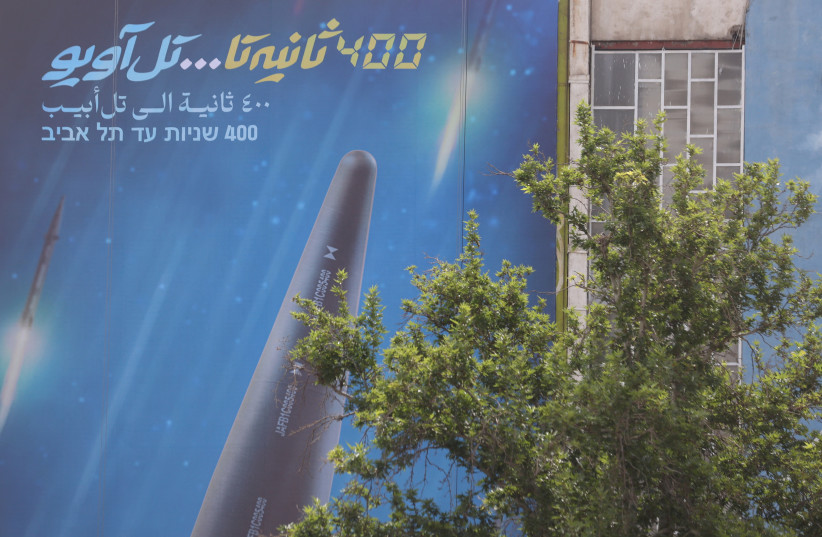What does the latest IAEA report mean for Iran nuke standoff? – analysis
The latest IAEA reports from Reuters on Monday, which will be publicized next week left heavy confusion regarding the state of things with Iran and the West in their nuclear standoff.
Reading between the lines though, it would seem that both are creeping toward informal understandings resembling a new nuclear deal, even if both are still testing the other down to the wire.
On the one hand, the headlines from the two reports, one on uranium enrichment and one on nuclear monitoring more generally, painted Iran in a negative light.
They emphasized that Iran’s stockpile of uranium enriched to up to 60% purity, close to weapons grade, continues to grow, that there has been no progress in talks with Tehran on resolving probes into illicit uranium traces found at undeclared sites.
On the other hand, the context here is clear progress between Washington and Tehran toward unfreezing $10 billion in Iranian assets, releasing five US citizens in Iranian prisons, and reduced attacks by Iranian proxies on land against American forces in the Middle East.
 A billboard with a photo of a new hypersonic ballistic missile called ”Fattah” and with text reading ”400 seconds to Tel Aviv” is seen on a building in Tehran, Iran June 8, 2023 (credit: MAJID ASGARIPOUR/WANA (WEST ASIA NEWS AGENCY) VIA REUTERS)
A billboard with a photo of a new hypersonic ballistic missile called ”Fattah” and with text reading ”400 seconds to Tel Aviv” is seen on a building in Tehran, Iran June 8, 2023 (credit: MAJID ASGARIPOUR/WANA (WEST ASIA NEWS AGENCY) VIA REUTERS)Also, the report said that the pace of the uranium stockpile growth slowed considerably, from 9 kg. per month to 3kg per month. Taking into account that out of 7.5kg of enriched uranium, 6.4 kg was diluted, the actual total additional new 60% enriched uranium may have fallen to 1.1kg.
By slowing down and diluting its 60% enriched uranium pace, Iran is messaging to the Biden administration that it is open to a deal which likely includes a total freeze.
By not totaling freezing enrichment, it is communicating to the West that it is still holding out, whether it be all of the unfrozen $10b. actually arriving in Iran, receiving additional sanctions relief, or trying to press more to close or lower the pressure on the IAEA probes.
Mixed messages in Iran standoff
How one views these mixed messages depends on broader perspectives.
The West views a nuclear Iran as threatening, though not in an imminent or existential way. Even if tomorrow Iran could fire a nuclear weapon, Washington, London, Paris and Berlin would still be far out of range of the ayatollahs’ ballistic missiles.
Best estimates are that Iran would need yet another three years to develop much longer range ballistic missiles to reach them.
There is also no daily or monthly conflict between Iran and the West. At most, there are occasional flare-ups between US forces and allies stationed in the Middle East and Iran’s proxies.
In contrast, Israel has been within range of Iran’s ballistic missiles since the 1990s. Once the Islamic Republic masters miniaturization of a nuclear warhead and certain detonation issues, it could conceivably attack Israel.Moreover, Jerusalem and Tehran are shooting at each other up close on a weekly basis or more frequently through proxy fights in Syria, Lebanon, and terror from Palestinian Islamic Jihad.
For the Jewish state, Iran is not a general threat, but rather represents an imminent and a potential existential one.So the West may view a slower pace of 60% uranium enrichment as major progress. For them, without the JCPOA to bind Iran and without a willingness to unleash a military offensive against Tehran’s nuclear program, coaxing the ayatollahs to slow or freeze aspects of the nuclear program is the only option. Any progress is progress.
For Israel, slowing down uranium enrichment is close to meaningless, a freeze is a small achievement, only a heavy reduction would actually lower the severity of the nuclear threat, and only a full resolution of all outstanding nuclear suspicions would bring stability.
That the IAEA is keeping up any pressure on these issues is positive from Israel’s perspective. But once there is a full enrichment freeze, will the IAEA and the West let up, or go the distance in getting Tehran to reduce its existing uranium stockpile and resolve the questions about its nuclear program’s military dimensions?
Reports will not answer that critical question, only decisions by the West’s leaders at decisive moments in the near future can do so.





Comments are closed.